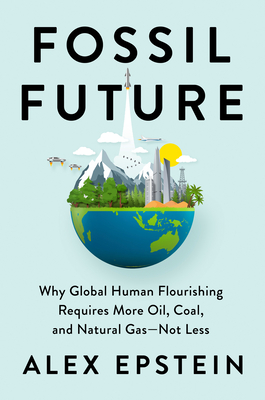What do you think?
Rate this book


480 pages, Hardcover
First published May 24, 2022
"What can be foreseen with great certainty is that much more energy will be needed during the coming generations to extend decent life to the majority of a still growing global population whose access to energy is well below the minima compatible with a decent quality of life."Where Epstein does start to get (more) controversial (or depending on your point of view or politics, completely off the deep end) is the section discussing/minimizing human climate impacts. Ideas like (paraphrasing) "CO2 isn't so bad because it's plant food." Downplaying human impacts on climate by countering with human adaptability. Every one of his arguments is essentially true (plants DO eat CO2, humans ARE adaptable). And when you start to ask yourself a question about something Epstein missed, like "what about the coral reefs, Epstein!? What do you think about those?!" you have to go back to anti-impact vs. human flourishing, and ask yourself if you believe depriving the developing world of live-giving energy outweighs coral reefs (or whatever else you imagine).
We have only one planet. This fact radically constrains the kinds of risks that are appropriate to take at a large scale. Even a risk with a very low probability becomes unacceptable when it affects all of us – there is no reversing mistakes of that magnitude.I would recommend this book to readers interested in energy because I suspect some of the verbiage coined in the book will grow in popularity, and it would be helpful to have the full context of the book, regardless of what you think when you finish.
...
It is the degree of opacity and uncertainty in a system, as well as asymmetry in effect, rather than specific model predictions, that should drive the precautionary measures. Push a complex system too far and it will not come back. The popular belief that uncertainty undermines the case for taking seriously the 'climate crisis' that scientists tell us we face is the opposite of the truth. Properly understood, as driving the case for precaution, uncertainty radically underscores that case, and may even constitute it.